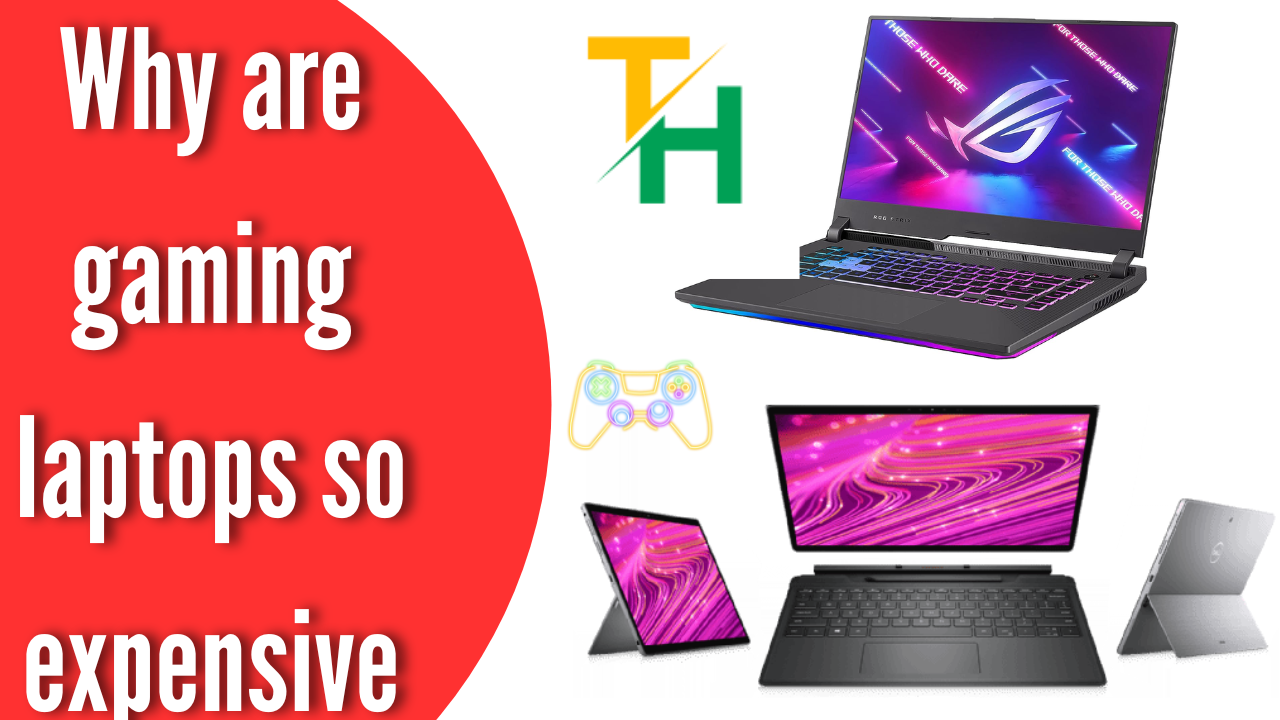Gaming laptops have gained immense popularity over the years, offering a portable solution for gamers who want to experience high-quality gaming on the go. However, one common question that arises when shopping for gaming laptops is: Why are gaming laptops so expensive? In this article, we'll delve into the factors that contribute to the high price tags of gaming laptops, helping you understand the investment behind these portable gaming powerhouses.
1. High-End Hardware Components
One of the primary reasons gaming laptops are expensive is the inclusion of high-end hardware components. Gaming demands powerful processors, dedicated graphics cards, ample RAM, and fast storage solutions. Manufacturers often opt for the latest and most capable hardware to ensure that gaming laptops can handle the most demanding games with ease.
a. Graphics Processing Unit (GPU)
Dedicated graphics cards are a crucial component of gaming laptops. These GPUs are designed to deliver outstanding gaming performance and graphics quality. High-end gaming laptops typically feature discrete GPUs from manufacturers like NVIDIA and AMD, which come with a substantial price tag.
b. Central Processing Unit (CPU)
Gaming laptops often feature powerful CPUs that can handle the computational demands of modern games. High-performance processors from Intel and AMD, such as Intel Core i7 and AMD Ryzen 7 series, are commonly found in gaming laptops.
c. RAM and Storage
Gaming laptops require ample RAM to ensure smooth gameplay and multitasking. Additionally, they often come equipped with fast solid-state drives (SSDs) for quick game loading and system responsiveness. These components contribute to the overall cost of the laptop.
2. High-Quality Displays
Gaming laptops feature high-quality displays that are essential for an immersive gaming experience. Factors that increase the cost of displays in gaming laptops include:
Refresh Rate
Gaming laptops often come with high refresh rate displays (e.g., 120Hz, 144Hz, or even 240Hz), which provide smoother and more responsive gameplay. These high refresh rate panels are more expensive to manufacture.
b. Resolution
Many gaming laptops offer Full HD (1080p) or even 4K displays for stunning graphics quality. Higher resolution displays require more advanced technology, contributing to higher costs.
c. Panel Type
Gaming laptops may feature In-Plane Switching (IPS) panels that offer wider viewing angles and better color accuracy compared to cheaper display technologies like Twisted Nematic (TN).
3. Thermal Management
Efficient cooling is vital for gaming laptops to maintain optimal performance during extended gaming sessions. High-performance components generate a significant amount of heat, and gaming laptops need advanced thermal solutions, which can include multiple heat pipes, high-quality fans, and efficient heat dissipation materials. These cooling systems add to the laptop's cost.
4. Build Quality and Design
Gaming laptops often feature premium build materials, such as aluminum or magnesium alloy chassis, which not only enhance durability but also add to the laptop's overall cost. The design of gaming laptops may incorporate unique aesthetics, customizable RGB lighting, and features like mechanical keyboards, all of which contribute to the laptop's price.
5. Portability and Form Factor
Gaming laptops are designed to be portable while delivering desktop-level gaming performance. Achieving this balance requires engineering and design expertise, leading to the development of thinner and lighter gaming laptops with advanced thermal solutions. The pursuit of portability, combined with high-end performance, adds to the overall cost.
6. Brand and Marketing
Established gaming laptop manufacturers invest heavily in marketing and brand reputation. Gaming laptop brands with a strong presence in the market may charge a premium for their reputation, customer support, and warranty services.
7. Customization and Upgradability
Some gaming laptops offer customization options, allowing customers to choose specific hardware components to meet their performance requirements. Additionally, upgradable components, such as RAM and storage, can increase the initial cost but provide long-term flexibility.
8. Gaming-Specific Features
Gaming laptops often come with gaming-specific features such as customizable RGB lighting, dedicated macro keys, high-quality audio solutions, and software enhancements. These features enhance the gaming experience but can add to the cost.
9. Research and Development
Manufacturers invest in research and development to create innovative gaming laptops with cutting-edge technology. These investments are reflected in the pricing of the final product.
10. Limited Market Demand
The market for gaming laptops is relatively niche compared to mainstream laptops. Manufacturers often produce gaming laptops in smaller quantities, which can result in higher production costs per unit. Additionally, lower demand for gaming laptops may lead to less competitive pricing in comparison to mainstream laptops.
11. Gaming Ecosystem
Gaming laptops are part of a broader gaming ecosystem that includes gaming peripherals, accessories, and software. Manufacturers may offer gaming bundles or partnerships with game developers, which can increase the overall cost.
12. Operating System Licensing
Most gaming laptops come with Windows operating systems pre-installed, which adds a licensing cost to the overall price of the laptop.
Conclusion: The Investment in Gaming Performance
In summary, gaming laptops are expensive due to the combination of high-quality hardware components, premium displays, advanced thermal management, build quality, and gaming-specific features. These laptops are engineered to provide an immersive gaming experience, often rivaling the performance of desktop gaming setups.
While their price tags may be higher than mainstream laptops, gaming laptops offer portability and convenience for gamers who want to take their gaming on the road or simply prefer a compact gaming solution.
Ultimately, the cost of a gaming laptop is a reflection of the investment required to deliver a premium gaming experience in a portable form factor. Gamers looking for top-tier performance and the flexibility to play games anywhere they go are willing to pay the price for the power and convenience that gaming laptops provide.








Post a Comment
0 Comments